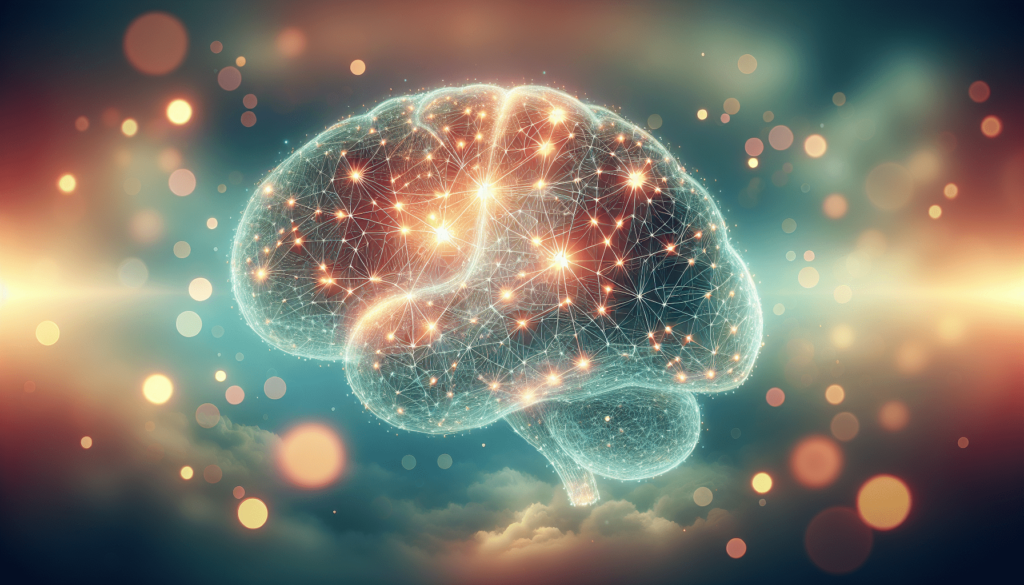
Have you ever found yourself lying awake during the wee hours, with a mind full of unanswered questions and a heart that feels heavy? In such isolated moments, when it seems like there’s no one around to help, the thought of turning to AI therapy might seem like a strange but intriguing option. Imagine chatting with a virtual therapist shaped like a penguin, offering solace in the digital world. This burgeoning field, often perceived as quirky, is fast emerging as a lifeline for many struggling with mental health issues.
The Midnight Therapist
It’s 1 a.m., and sleep seems but a distant memory. In a quiet household, who do you turn to when the shadows of existential dread won’t let you rest? The concept of having a digital confidant, readily available through an app, is becoming more than just a novelty. AI therapy apps are presenting a potential remedy for many, as they can connect you with a virtual presence that listens, without judgment, at any hour.
These applications are stepping up as ad-hoc saviors in an ongoing mental health crisis. But they also lead us to question: How well can artificial intelligence cater to the complex needs of vulnerable individuals? Moreover, how can we ensure that the digital paths to mental wellness remain safe and reliable?
The Global Mental Health Crisis: A Growing Problem
Mental health issues are neither new nor isolated phenomena. In fact, a staggering 1 in 4 individuals will experience mental illness at some point in their lives. Tragically, these challenges often go overlooked or untreated, especially when mental health resources remain severely underfunded across the globe.
According to the World Health Organization (WHO), mental health issues account for more than 3.6% of deaths, as per the EU’s 2021 data. The economic ramifications are vast, affecting productivity and contributing to workplace challenges. Yet, most countries allocate less than a mere 2% of their healthcare budgets to address these pressing concerns. The gap between necessity and availability highlights an urgent need for innovative measures.
| Statistics | Details |
|---|---|
| WHO Statistics | 1 in 4 people will encounter mental health issues in their lifetime. |
| EU 2021 Data | Mental and behavioral disorders contributed to 3.6% of deaths. |
| Healthcare Budgets | Many nations dedicate less than 2% to mental health funding. |

Enter AI Therapy: A Digital Lifeline
Picture a scenario where therapy is as simple as tapping an app on your phone, ready to offer support whenever you need it. AI therapy is turning this vision into reality. It offers accessibility that’s affordable, convenient, and ever-present—qualities that make it particularly attractive.
AI therapy bridges gaps in areas where access to human therapists is scarce or non-existent. It supports those dealing with social anxiety or residing in remote locations. Innovative tools like Wysa, a penguin chatbot, provide conversational therapy, while platforms like Woebot Health and Youper utilize generative AI to power chatbots. Deepkeys.ai goes a step further, tracking moods like a “heart-rate monitor for your mind.”
Safeguarding Vulnerability: The Risks of AI Therapy
The digital presence of AI therapy offers comfort, yet it’s crucial to acknowledge when artificial empathy may fall short. There have been unsettling reports linking AI chatbots to tragic outcomes, including cases where interactions contributed to suicides on platforms like Character.ai and the Chai app.
AI can replicate empathy but cannot genuinely feel or authentically respond. Dr. David Harley warns that over-reliance on such bots could lead to misguided decisions. The ethical landscape is also rocky, with concerns about unregulated apps potentially exploiting user vulnerabilities. It’s a reminder of the need for safeguarding practices in the realm of AI therapy.

Wysa: A Safer Approach to AI Therapy
Enter Wysa, a virtual penguin that’s redefining mental health support with a sharp focus on safety. This platform has made strides toward ensuring a balance between innovation and user protection. Partnering with the UK’s NHS, Wysa adheres to rigorous standards such as the DTAC and upcoming AI Act, making it a safer choice in AI therapy.
Wysa’s hybrid care model integrates AI tools with access to human therapists through its Copilot platform. Users can also utilize video calls, voice messages, and customized recommendations, ensuring a personal touch amid digital interactions. For those in crisis, Wysa acts as a true ally, offering grounding exercises, safety planning, and helpline access with its SOS features.
The Role of Avatars in AI Therapy
Why, out of all avatars, would an AI platform choose a penguin? The answer lies in the psychological comfort and trust such an unassuming creature can inspire. Wysa’s penguin actor is the key to fostering an emotional connection with users while offering a gentle reminder that you are engaging with a bot, not a human.
The concept of “cuteness as therapy” is not confined to Wysa. Innovations like Moflin, a fluffy AI pet, further demonstrate how the mimicking of emotional bonding becomes a therapeutic tool. These avatars introduce an element of warmth and approachability, pivotal in creating a safe space for digital therapy.

Striking a Balance: AI vs. Human Therapists
AI therapy shines in accessibility and scalability, yet the question remains—can it ever truly replace the warmth of human connection? There’s a growing view that AI’s primary role should be complementary. The nuances of human interaction, like interpreting tone, body language, and non-verbal cues, remain irreplaceable. True empathy, an essential component of emotional support, is primarily the domain of human therapists.
The Path Forward: Regulating AI for Better Mental Health
The amalgamation of technology with ethical mindfulness can lead to transformative outcomes. However, regulation and oversight are crucial. Standards like those upheld by the NHS and AI Act provide essential safeguards. The partnership between Wysa and the NHS demonstrates promising results, including profound reductions in depression (36%) and anxiety (27%).
Ethical design should be at the core of AI therapy applications, focusing on intentional usage and steering clear of harmful or off-topic conversations. As we look to the future, these practices will be central in making digital mental health support both effective and safe.

Conclusion: Tools, Not Replacements
AI therapy emerges as a powerful tool in the fight for accessible mental health, yet the irreplaceable touch of human care remains pivotal in recovery narratives. Emotional connection and genuine empathy are at the heart of healing, something only human connections can unwaveringly provide.
Considering how critical these elements are, our call to action encourages you to advocate for ethical AI tools that complement human efforts while advocating for global improvements in mental health resources. By doing so, we ensure that the digital lifeline becomes an equitable accessory, not a substitute, to comprehensive mental health care.





